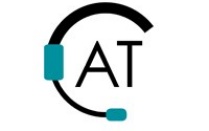Full citation
Olmos-Peñuela, J., et al. (2014). "Knowledge transfer activities in social sciences and humanities: Explaining the interactions of research groups with non-academic agents." Research Policy 43(4): 696-706.
Research notes: Cites #10 Perkman, Markus & Walsh, Kathryn. (2007). University-Industry relationships and open innovation: Towards a research agenda. International Journal of Management Reviews, 9(4), 259-280.
Format: peer-reviewed journal article
Type: Non-experimental study
Experience level of reader: Fundamental
Annotation: Research is collaborative aspect of science. Many studies examine partnerships between industry and university as separate actors; this paper examines the research team as a singular unit. This paper suggests that as humanities research is less likely to result in the creation of intellectual property or commercially valuable findings, directly engaging in knowledge transfer is their means to achieving relevance and making an impact.
Setting(s) to which the reported activities/findings are relevant: Government, Small business, Large business, University.
Knowledge user(s) to whom the piece of literature may be relevant: Researchers, Intermediaries, Advocates, Brokers, Manufacturers.
Knowledge user level addressed by the literature: Basic
This article uses the Commercial Devices and Services version of the NtK Model
Primary findings
Barriers
The amount of social science and humanities groups participating in knowledge transfer is proportionate to engineering and the physical sciences; however the societal impact of knowledge produced by the arts, humanities and social science academics is more difficult to quantify.
Findings of data analysis
Occurrences within model: KTA 3.F
Carriers
- Examining economic, cultural, policy, and innovative progress works to quantify research collaborations that are not commercial or technology based.
Findings of data analysis
Occurrences within model: NtK Step 2.1, 3.6, KTA 3.F - Firms and government agencies rely on social scientists as consultants to ground business strategies and for managing the innovation process.
Findings of data analysis
Occurrences within model: NtK Steps 3.1, 3.8, 4.1 - Social sciences and humanities contribute to society by promoting self-reflection along with critical and conceptual thinking – activities that sustain ideas and legitimize societal needs.
Findings of data analysis
Occurrences within model: NtK Step 3.8, KTA 3.F
Methods
(2) Measure cultural outcomes using eight channels: performances, exhibitions, publications, consultation, access, learning, e-engagement, and other. From AHRC, 2009b. Shaping Metrics for HEI Cultural Engagement – Knowledge Transfer, AHRC Project Report.
Findings of data analysis
Occurrences within model: NtK Steps 2.1, 3.6
Tips
- “Direct interaction with users is critical for successful two-way flows of knowledge that give researchers an accurate understanding of the context of application and provide users with valuable knowledge whether symbolic, conceptual or instrumental.”
Findings of data analysis
Occurrences within model: NtK Steps 3.6, 4.11, 5.2, Stage 6, KTA 6.C, KTA 6.E - Researchers take a professional risk by leaving academia to work in the private sector. Using researchers as consultants provides more academic freedom and better positions them to return to or stay within academia, making collaboration a more attractive prospect. Findings of data analysis
Occurrences within model: NtK Steps 3.1, 4.1
